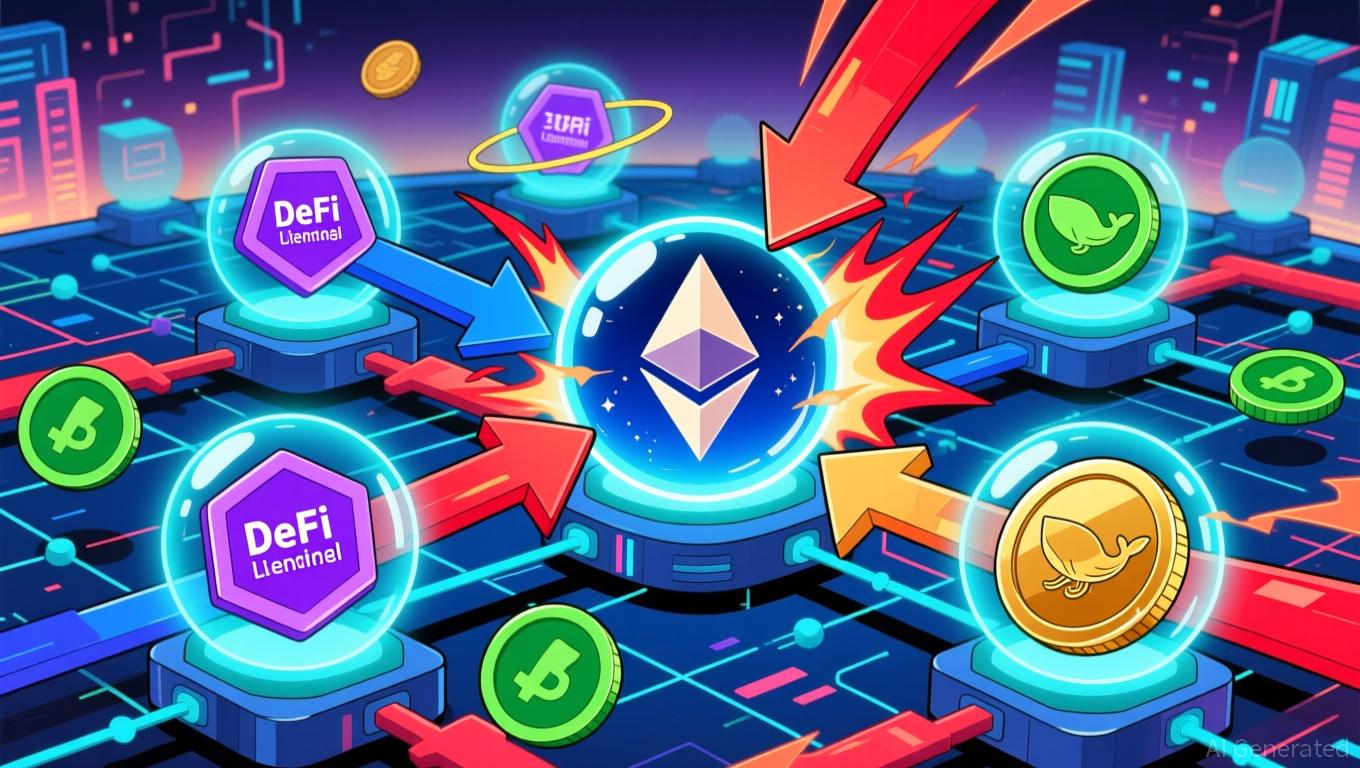Circle’s Rapid USDC Expansion Fails to Boost Struggling Shares Amid Rising Expenses and Divided Analyst Opinions
- Circle reported strong Q3 2025 results with $73.7B USDC growth but stock fell 5.4% premarket as costs rise and analysts split. - Revenue surged 66% to $740M while net income jumped 202% to $214M, yet RLDC margins dropped 270 bps to 39% amid expanding balances. - Arc blockchain's public testnet attracted 100+ institutional participants, with partnerships announced with Deutsche Börse and Visa to expand stablecoin adoption. - Analysts remain divided: J.P. Morgan "Sell" vs. Monness Crespi "Buy" at $150, whi
Circle Internet Group (CRCL) delivered strong results for the third quarter of fiscal 2025, fueled by rapid expansion in its

The earnings release also underscored Circle’s strategic move into institutional finance with its Arc blockchain platform. The company rolled out a public testnet for Arc, drawing over 100 participants from the banking, fintech, and digital asset sectors, as reported by
Analysts remain split in their outlook. J.P. Morgan kept a "Sell" recommendation, citing overvaluation despite better profitability, while Monness Crespi Hardt began coverage with a "Buy" rating and a $150 price target, suggesting a 52.6% potential upside, according to the
Circle’s outlook points to ongoing investments in its platform and new partnerships. The company raised its 2025 "Other Revenue" forecast to $90–$100 million from the previous $75–$85 million and now expects adjusted operating expenses of $495–$510 million, higher than earlier projections, as stated in the
Regulatory developments in 2025 have brought more clarity for stablecoins, supporting Circle’s growth plans. Nonetheless, challenges remain. A quicker-than-anticipated reduction in Fed rates could slow reserve income growth, and intensifying competition from
Investors are expected to monitor Arc’s development closely, including the timeline for launching a native token and its integration with the Circle Payments Network. For now, Circle’s performance depends on maintaining USDC’s 29% market share while effectively managing distribution expenses and navigating regulatory challenges, as reported by
Disclaimer: The content of this article solely reflects the author's opinion and does not represent the platform in any capacity. This article is not intended to serve as a reference for making investment decisions.
You may also like
Ethereum News Update: Institutions Eye Ethereum—Balancing Legal Challenges and Major Investor Accumulation
- Ethereum nears $3,400 amid rising institutional interest and whale accumulation, signaling potential rebound toward $4,000. - DeFi projects like Ethena and utility tokens RTX gain traction, highlighting Ethereum's role in capital-efficient infrastructure. - Legal uncertainties persist after MEV fraud trial ends in mistrial, exposing tensions between blockchain rules and traditional law. - Whale activity shows $1.37B ETH accumulation in November, contrasting with Bitcoin's weaker institutional demand. - A

U.S. Cryptocurrency Oversight Faces Uncertainty as Lawmakers Divide Authority Between SEC and CFTC
- SEC accelerates crypto regulation clarity, balancing innovation with investor protection via streamlined exemptions and jurisdiction boundaries. - Senate bill proposes dual oversight: CFTC regulates digital commodities (Bitcoin/Ether), SEC retains control over investment contracts. - Tax reforms enable crypto ETFs to stake assets, resolving legal uncertainties and boosting institutional adoption through staking rewards. - Bipartisan efforts aim to create cohesive U.S. crypto framework, though challenges
Bitcoin News Today: Square’s No-Fee Bitcoin Initiative Prompts Payments Sector to Reevaluate
- Square introduces zero-fee Bitcoin payments for merchants until 2027, challenging traditional credit card networks. - The initiative enables fiat-to-Bitcoin conversions and cross-border transactions, positioning Bitcoin as a functional currency. - Industry observers highlight cost savings for small businesses, with Bitcoin fees undercutting 1%-4% credit card rates, while competitors like Visa face regulatory pressures.

Systems Thinking in Supply Chains Influences Today's Leaders, Says Ford's Farley
- Ford CEO Jim Farley argues supply chain mastery is vital for leadership, citing Apple's Tim Cook and GM's Mary Barra as exemplars. - Supply chain disruptions highlighted by First Solar's earnings drop and Kimberly-Clark's $48.7B Kenvue acquisition challenges underscore its strategic importance. - China's resumption of Nexperia chip shipments reveals semiconductor supply chain fragility amid geopolitical tensions. - Farley criticizes traditional four-year degrees for entry-level roles, advocating technica